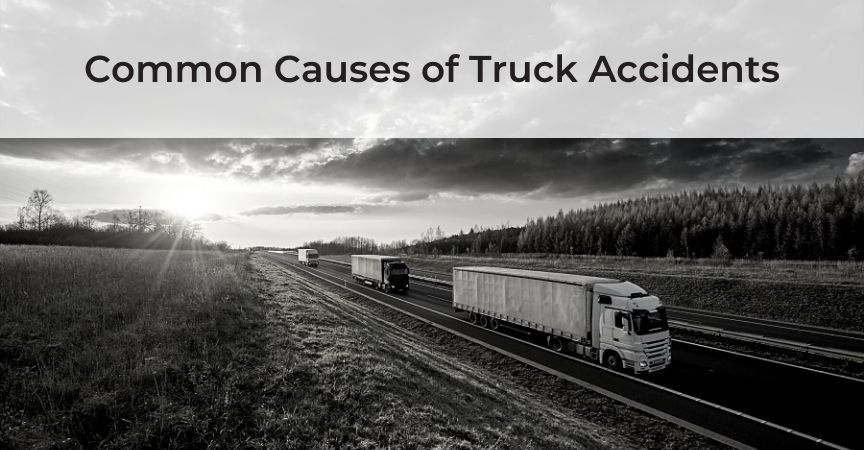Commercial trucks, semi-trucks, tractor-trailers, and municipal trucks are only some of the massive vehicles on the road at any given time, all of which are nearly 30-40 times the mass of the traditional family car, according to the Insurance Institute for Highway Safety. When a large truck is involved in an accident with a car or an SUV, the results can be catastrophic, even deadly.
Truck accidents always involve a multitude of factors that can depend on the drivers, the rig, the manufacturer, or environmental elements. It is important that truck drivers abide by traffic laws, stay alert, and maintain safety precautions while operating their vehicles to minimize the chance of an accident.
The Federal Motor Carrier Safety Administration (FMCSA) estimates that about 450,000 truck accidents occur nationwide each year, resulting in over 4,000 deaths annually. According to the National Highway Traffic and Safety Patrol’s 2019 statistics 7.7% of California truck drivers were involved in fatal crashes during that year. Most of these accidents are preventable and happen at the fault of the truck driver.
Some of the common causes of truck accidents include:
-
Fatigue
One of the top causes of accidents involving trucks is a result of exhaustion or fatigue from long hours of driving. Many drivers will drive past the point of exhaustion to make more money. The FMCSA has set specific laws for commercial drivers including mandatory breaks. Commercial drivers may drive for up to eleven hours following a mandatory 10-hour rest. In California, all commercial drivers must rest for 10 minutes after every 4 hours of driving and take a thirty-minute break after every 5 hours.
-
Speeding
Since trucks are so much larger than cars, speeding is all that more dangerous. Due to their mass, it takes longer for a truck to slow its speed, change direction, and for the driver to maintain control. The state of California requires truck drivers to travel at 10 mph slower than the posted speed limit to help maintain safe roadways.
-
Unbalanced or Excessive Load
A truck that has an unbalanced or excessive load of any type of material can cause unnecessary movement on the road and limit the amount of control the driver has over the rig. Overloading a truck can put extra strain on the truck’s frame, which can impact the axel framing, tires, and suspension, causing failure.
-
Mechanical Failure
Poor brake maintenance is the number one cause of trucking accidents due to mechanical failure. Breaks on a commercial truck require a specific amount of air pressure, and when that air supply is not functioning properly, the truck’s brakes will not function properly as a result. Large trucks typically undergo more wear and tear than a standard vehicle and require frequent maintenance.
-
Weather Conditions
Rain, snow, ice, and fog are among the most common elements that contribute to truck accidents. All drivers experience these weather conditions but due to their size, trucks are much more susceptible to dangerous accidents and should take extra precautions during weather events.
The FMCSA has placed regulations on trucks and their drivers to work towards eliminating preventable accidents and placing more accountability on trucking companies and their drivers. Drivers are required to use electronic logging devices that automatically track the number of hours a driver has been operating their truck, collision warning systems, and automatic braking systems. More information regarding causes, statistics, and recovery of truck accidents can be found here.
If you or a family member have been involved in an accident with a truck do not hesitate to reach out to an attorney. Our team of Bakersfield Truck Accident Attorneys at Rodriguez and Associates are here to assist you every step of the way to help you reach recovery.
Our history of recoveries includes $16,100,000 in a case involving a big rig wheel flying off and crashing into a car and $5,250,000 in a case of a motorcycle vs. a big rig truck crash.
Contact us today online or by phone at (661) 777-7575 to schedule a free consultation.
